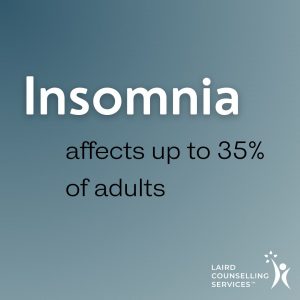 Did you know that insomnia affects up to 35% of adults?
Did you know that insomnia affects up to 35% of adults? ![]()
What is insomnia?
Marked by difficulties in falling asleep, staying asleep, and achieving the desired duration of sleep, insomnia can cast a shadow over both nights and days. Its repercussions include excessive daytime sleepiness, an elevated risk of accidents, and widespread health effects stemming from sleep deprivation.
Insomnia can be related to many different causes, including:
Stress: The weight of daily life can infiltrate the tranquility of sleep.
Irregular Sleep Schedule: Disruptions in sleep routines can trigger and perpetuate insomnia.
Poor Sleeping Habits: Neglecting the fundamentals of healthy sleep practices.
Mental Health Disorders: Conditions like anxiety and depression intertwine with insomnia.
Physical Illness and Pain: Underlying health issues can disrupt peaceful sleep.
Medications: Certain drugs may interfere with the sleep cycle.
Neurological Problems: Disorders affecting the nervous system may disrupt sleep.
Specific Sleep Disorders: Conditions like sleep apnea or restless legs syndrome can interfere with sleep.![]() A Complex Tapestry:
A Complex Tapestry:
Insomnia is not one-size-fits-all; its manifestation varies based on causes, severity, and underlying health conditions. The interplay of stress, irregular schedules, mental health, and physical well-being creates a complex web that initiates and exacerbates insomnia.
Understanding the intricacies of insomnia is the first step toward tailored solutions. By unraveling this sleep struggle, we pave the way for more restful nights and brighter days.
If you’re affected by insomnia, contact your primary care provider, and reach out to a mental health professional to explore treatment options.
